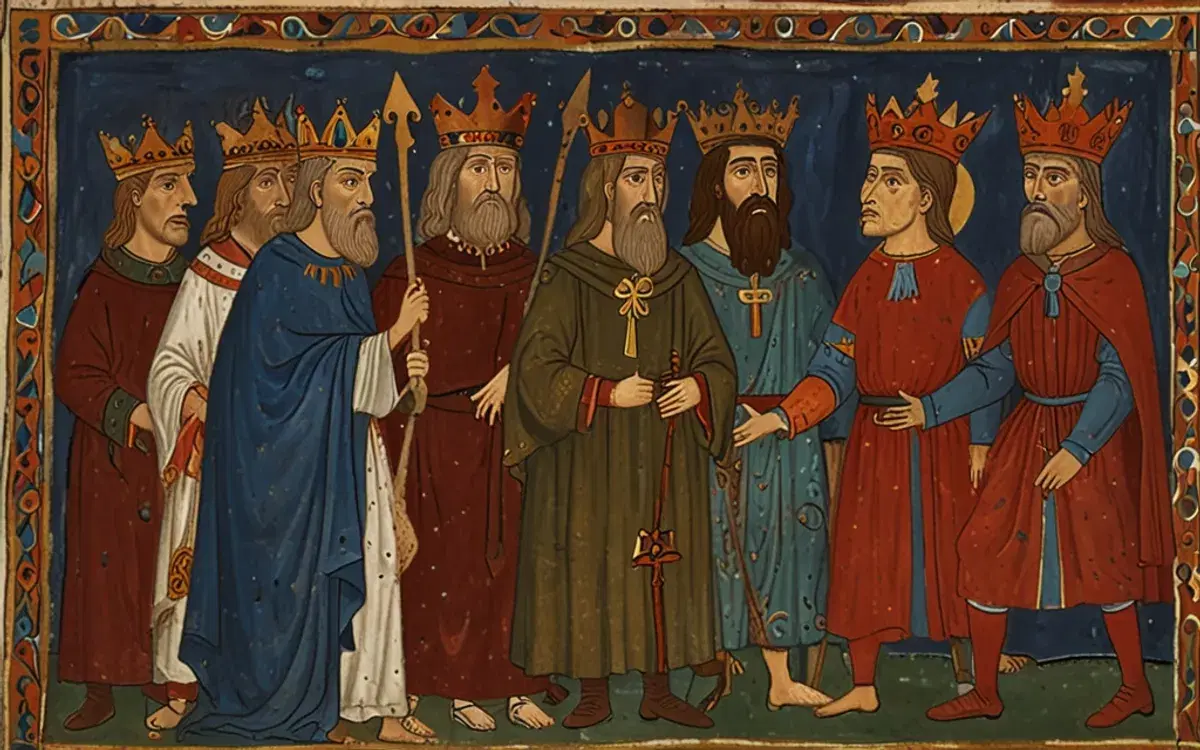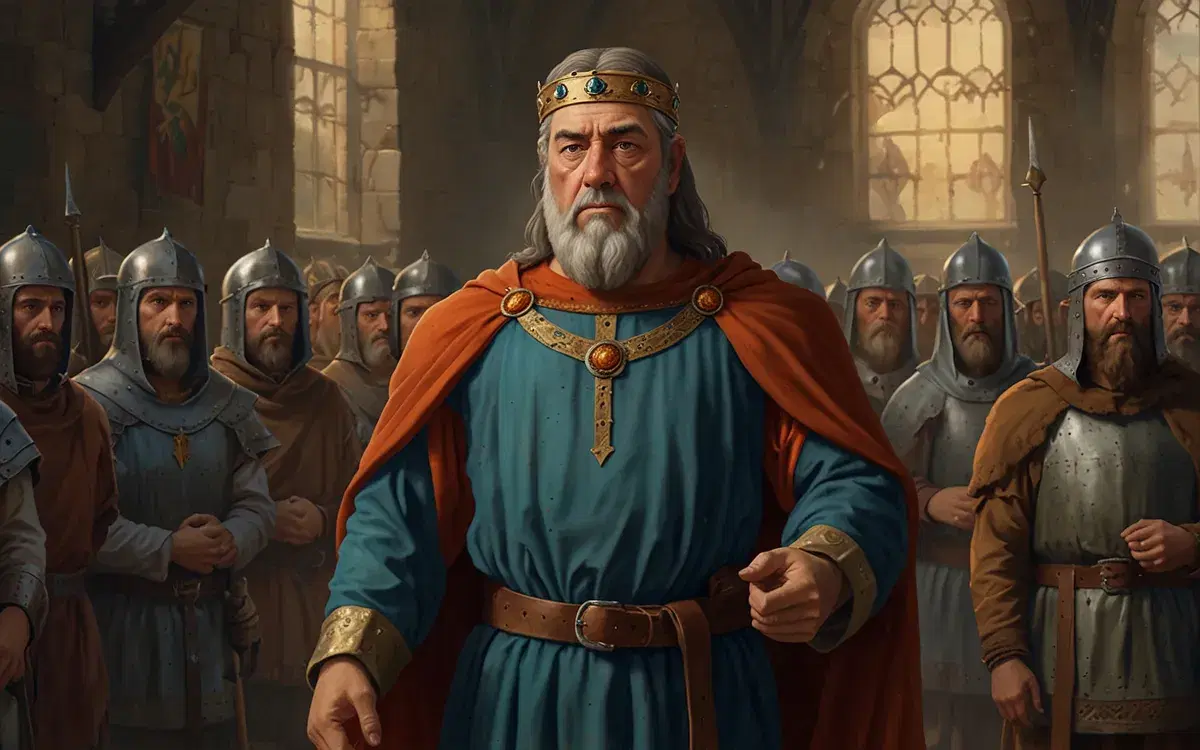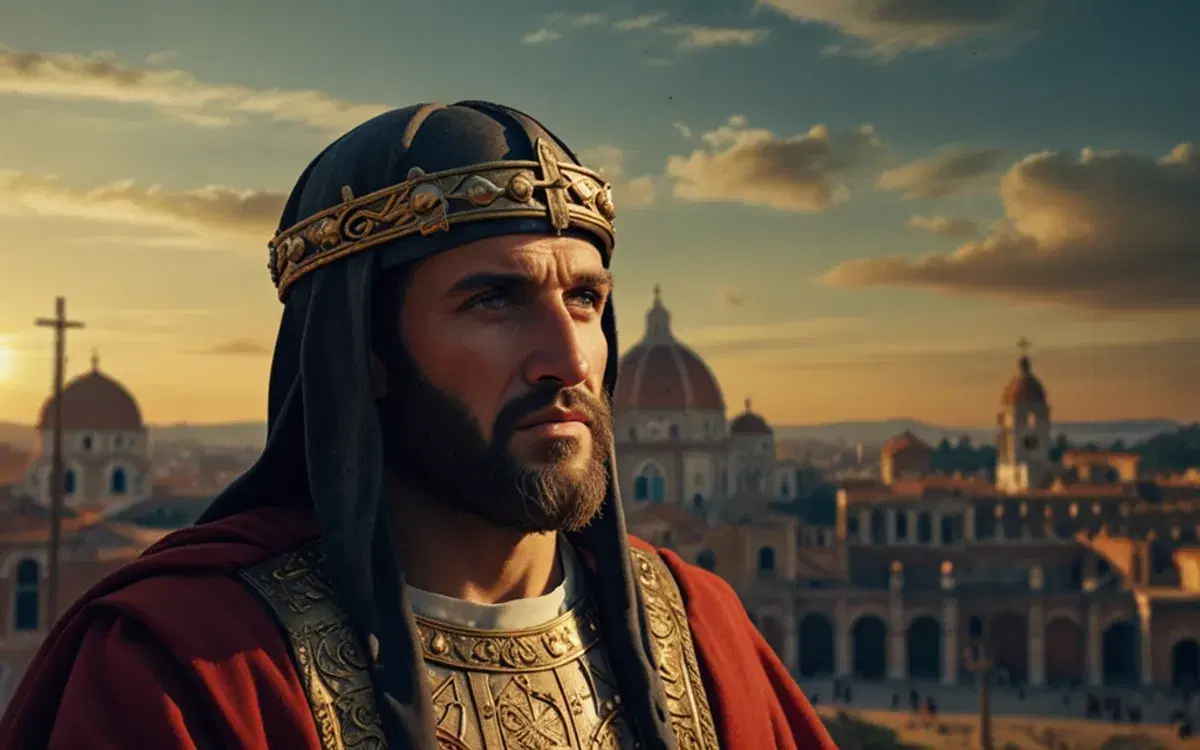Clovis and the Rise of the Franks: Foundations of Medieval Europe
The development of medieval Europe owes much to the migrations and settlements of various Germanic tribes like the West-Goths, Burgundians, Vandals, East-Goths, and Lombards. While each group left its mark on the continent, none succeeded in establishing a permanent state that endured through the centuries. Their principal role was the dismantling of the Western Roman Empire. The formidable task of constructing a new, enduring power to fill the void fell to a people known as the Franks.

Rise of the Franks
Early Steps of the Franks
The Franks were among the first Germanic tribes to establish themselves within the Roman province of Gaul, but they were slow to consolidate power compared to their contemporaries. For over five centuries, since Julius Caesar's conquest, Gaul had been deeply Romanized—even more so than Italy in some respects. However, by the twilight of the Empire, Gaul’s vitality had diminished. Oppressive taxation, political corruption, and a decline in patriotism left the populace ill-equipped to resist barbarian incursions.
The Franks, originally from the right bank of the Rhine, had begun their migration into Gaul as early as a hundred years before the West-Goths crossed the Danube. Initially welcomed as allies or subjects of Rome, they settled on the Rhine’s western bank and steadily grew in strength. Despite early efforts to resist other Germanic tribes like the Vandals and Burgundians, they too aspired to carve out a domain for themselves within Roman territory. Over time, they expanded into northern France, Belgium, and parts of Holland.
When the Huns, led by the fearsome Attila, stormed into Gaul, the Franks fought valiantly alongside the Romans and West-Goths to repel them. After Attila’s defeat, the Franks secured several key territories in the Rhine Valley, laying the groundwork for their future expansion.
Role of Clovis in Shaping the Frankish Kingdom
The rise of the Franks to preeminence was largely due to the leadership of Clovis, a young and ambitious king who ascended to power at the tender age of sixteen, just five years after the fall of Rome. Clovis quickly distinguished himself as a cunning and ruthless ruler, traits that proved essential for uniting the fractious Frankish tribes and overcoming their rivals.
One of Clovis’s first significant campaigns was against Syagrius, the last Roman ruler in Gaul. After a decisive victory, Syagrius was executed, and his territory absorbed into Clovis’s growing realm. This victory showcased the fierce independence of the Franks; when Clovis sought to reclaim a sacred church vase taken during the campaign, a soldier’s refusal to comply led to dramatic retribution a year later. Clovis’s actions reflected not only his authority but also his ability to instill fear and discipline among his troops.

Rise of the Franks
Through a mix of military might and treachery, Clovis systematically eliminated his rivals. He manipulated alliances, orchestrated betrayals, and even murdered his own relatives to consolidate power. By the time his campaigns were complete, Clovis stood as the sole ruler of the Franks, having expanded their dominion into much of northern and central Gaul.
Territorial Expansion and Military Strategy
Clovis’s military campaigns extended far beyond the borders of Gaul. To the east, the Allemanians were subdued after years of warfare, and their territory became part of the Frankish realm. Clovis also turned his attention to the Burgundians and the West-Goths, achieving significant victories that solidified Frankish dominance in southern Gaul. Although he faced setbacks—notably at the hands of Theodoric, the King of the East-Goths—Clovis’s persistence ultimately paid off, with much of southern Gaul added to his kingdom.
By the time of his death, Clovis had created a vast kingdom stretching from the Rhine to the Pyrenees. This region, once known as Gaul, gradually became known as Francia, a name derived from its conquerors. Francia would eventually evolve into modern-day France, one of Europe’s most enduring states.
Conversion to Christianity
One of the most transformative moments in Clovis’s reign was his conversion to Christianity. The Franks had traditionally worshiped pagan gods like Woden and Thor. However, during a desperate battle against the Allemanians, Clovis’s prayers to his old gods went unanswered. In a moment of crisis, he invoked the Christian God, vowing to convert if granted victory. When the tide of battle turned in his favor, Clovis kept his promise.
Clovis’s conversion was more than a personal milestone; it was a strategic masterstroke. While other Germanic tribes like the Goths and Vandals were Arian Christians, a branch of Christianity viewed as heretical by Roman Catholics, Clovis adopted the Roman Catholic faith. This aligned him with the beliefs of his Roman subjects and won the support of the Pope. The unity of faith between rulers and subjects strengthened Clovis’s rule and laid the foundation for a close alliance between the Frankish monarchy and the Church.
Clovis’s baptism was a grand affair. Streets were adorned with painted awnings, churches draped in white, and incense filled the air. Though his conversion did not soften his ruthless nature, it marked the beginning of the Franks’ transformation into a Christian kingdom. This religious alignment became one of the pillars of the Frankish power’s longevity.

Clovis’s
Integration of Conquerors and Conquered
Unlike other Germanic tribes that abandoned their homelands during their conquests, the Franks retained their original territories while expanding into Gaul. This dual approach of settlement and conquest made their dominion more sustainable. The Franks allowed the Romanized Gauls to retain much of their land and culture while imposing their rule and collecting taxes. Over time, the distinctions between the two groups blurred as the Franks adopted the language, religion, and customs of their subjects.
Roman observers initially mocked the Franks for their perceived barbarity but gradually came to respect their martial prowess. Similarly, the Franks learned from their Romanized subjects, blending their traditions to create a unique cultural and political identity. This integration laid the groundwork for the eventual emergence of a unified French identity.
Legacy of the Franks
The rise of the Franks under Clovis was a turning point in European history. By combining conquest with strategic alliances and religious conversion, they established a kingdom that endured far longer than those of other Germanic tribes. The support of the Roman Catholic Church further solidified their position, ensuring that their rule was accepted by the Romanized populations of Gaul.
Clovis’s achievements set the stage for the Carolingian dynasty and the eventual emergence of the Holy Roman Empire. More importantly, the fusion of Germanic and Roman traditions under Frankish rule shaped the cultural and political landscape of medieval Europe, leaving a legacy that endures to this day.





